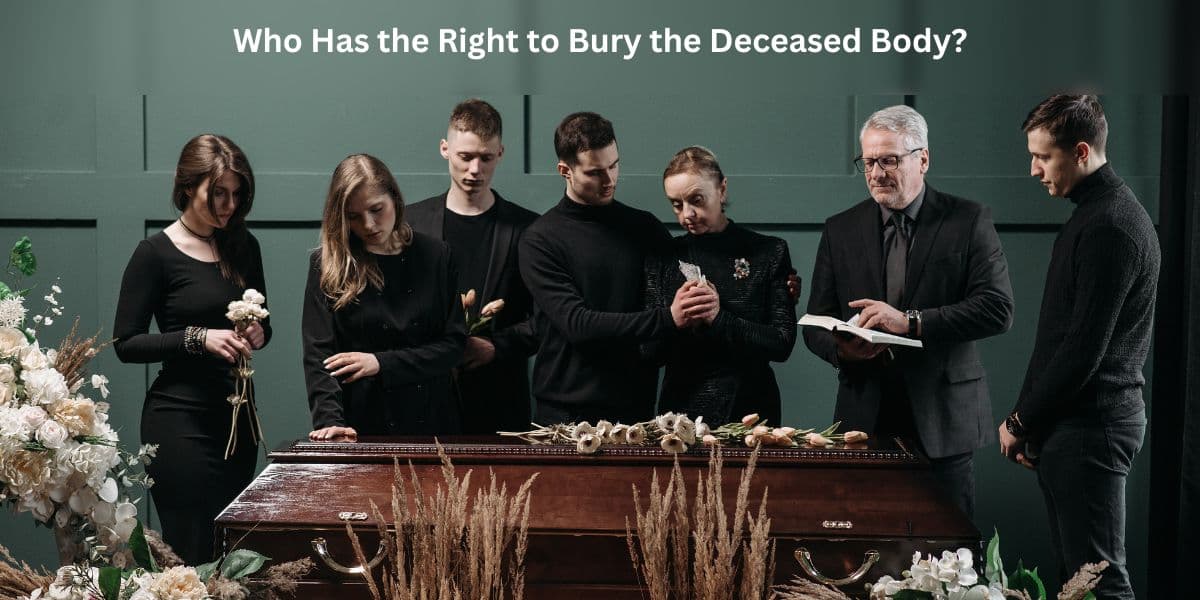
Who Has the Right to a Deceased Individual's Body?
Honoring a late loved one with a funeral often helps the family celebrate that loved one’s life and allows the decedent to rest in peace. From time to time, especially in contentious family situations, we receive questions concerning the remains of a loved one who has passed away. Who has control over the decedent’s body? Who is permitted to make the burial arrangements?
Can the Decedent Dictate what Happens to His or Her Bodily Remains After Passing?
Individuals have the right to make provisions for funeral arrangements and the disposition of their body after their passing. Where properly drafted, a Last Will & Testament, Trust, or other form of writing may provide instructions as to the disposition of the decedent’s remains. See FL Statute 732.804 & FL Statute 765.514.
Who has Priority to Determine the Disposition of a Decedent’s Remains?
Where there is no testamentary or written disposition to the contrary, certain relatives or family members can possess the body of a decedent for the purpose of burial or other disposition of the remains, as that authorized individual sees fit.
Where a decedent has not made provisions for funeral arrangements and the disposition of his or her body, Florida statute provides legal authorization to certain individuals to make these arrangements for a deceased person. The order or priority of individuals authorized to make these arrangements is as follows:
- The surviving spouse.
- A child who is 18 years of age or older.
- A parent.
- A sibling who is 18 years of age or older.
- A grandchild who is 18 years of age or older.
- A grandparent.
- Any person in the next degree of kinship.
Who Can Select a Casket or Burial Plot?
As referenced above, a decedent’s surviving spouse or next of kin has the legal right to dispose of the decedent’s remains. This legal right allows the authorized individual to select the decedent’s burial plot and casket, unless the decedent made provisions in his or her Last Will & Testament or another writing with respect to same.
Can the Decedent Donate His or Her Body or Body Parts?
Individuals may also donate their body or body parts by Last Will & Testament or another written instrument such as an organ and tissue donor card, Living Will or other advance directive. In order to be a valid gift or donation, the written instrument must be signed by the donor and witnessed by two individuals signing in the donor’s presence.
Any provision to this effect in a Will shall become effective immediately upon the passing of the decedent and it is not necessary to wait for the probate process. Where a Will is later declared invalid in a probate proceeding, the donation of the decedent’s body remains valid so long as the donation was acted on in good faith. See FL Statute 765.514.
What if a Decedent Does Not Make an Anatomical Gift During His or Her Lifetime?
Where the decedent has not provided for the donation of his or her body or body parts, family members may gift all or part of the decedent’s body. The order of priority of individuals authorized to make an anatomical gift is as follows:
- The decedent's spouse.
- An adult child of the decedent.
- Either parent of the decedent.
- An adult sibling of the decedent.
- An adult grandchild of the decedent.
- A grandparent of the decedent.
- A close personal friend.
- A guardian of the person of the decedent at the time of his or her passing.
- A representative ad litem appointed by a Court.
See FL Statute 765.512.
What if Family Refuses to Claim the Body?
If the decedent’s next of kin refuses to claim the decedent’s body, the county is responsible for burying the body at public expense. Florida statute authorizes the Anatomical Board of the State of Florida, which is based at the University of Florida Health Science Center, to receive unclaimed remains or those remains to be buried at public expense. Any person or entity in possession, charge, or control of unclaimed remains must immediately notify the Anatomical Board unless:
- the unclaimed remains are decomposed or mutilated by wounds,
- an autopsy is performed on the remains,
- the remains contain a contagious disease,
- a legally authorized individual objects to the use of the remains for medical education or research,
- the decedent was a veteran and is eligible for burial in a national cemetery, or
- the decedent was the spouse or dependent child of a veteran eligible for burial at a national cemetery.
See FL Statute 406.50.
If you have recently lost a loved one and don’t know where to start, contact our office to schedule your complimentary consultation with one of our experienced Florida probate lawyers today.
If you have recently lost a loved one and don't know where to start, contact our office today.
Schedule your complimentary consultation with one of our Florida probate attorneys today.
Contact Us
Other Useful Probate Blogs:

